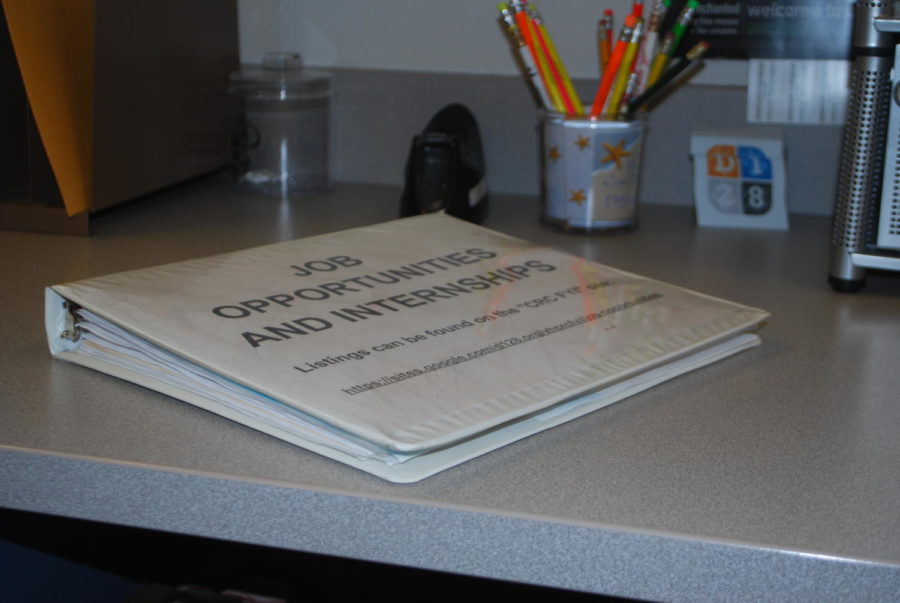Working pays off: The benefit of jobs for students
Life-guards, tutors, cashiers, hosts — those are just some of the open job positions listed in the job book. Jobs can be very beneficial for students. Aside from earning money, it’s something that students can use on college applications and on future resumes. Whether students want a job for the whole year or they just want a summer job, there are options.
Ms. Bellito, college resource counselor, takes time to put jobs that are sent to her by employers into a list. Recently, she emailed a link to a list of local internships and job shadow opportunities that are on the CRC FYI website.
“We’re, as a district, trying to increase the visibility of opportunities available to students in terms of internships, job shadow opportunities, and even just part-time employment,” Bellito said.
Having a job also gives students something to put on their college applications. Bellito stressed the importance of having some sort of extracurricular to show colleges.
“Colleges just want students to do a variety of things, whether it’s extracurriculars, working part-time, or volunteering. I don’t think that there’s just one certain way for kids to impress colleges,” Bellito explained. “They just want to see that students have done other things than go to school from 7:55 a.m. to 3:15 p.m.”
When it comes to having jobs, there are plenty of possible benefits. However, the biggest benefit might not come from the money that you earn. Ms. Benson, a personal finance teacher, mentioned that there are other skills you learn from having a job.
“You learn time management. That’s one of the most important things,” Benson said. “You also learn money management, because now you are earning money, and what you do with it and how you manage it is important.
Even though having a job can be very beneficial, Ms. Benson said students should think twice about having one.
“School always has to come first. If you’re the kind of student that can manage the appropriate level of classes at school and coursework, and have a job outside of that, then it’s beneficial to do that,” Ms. Benson said. “But school always comes first.”
Parker Test (12) also agreed that there are some skills that you can learn from a job that can be used later in life. From working at the cash register to stocking shelves, he has improved skills that are also used outside of the workplace.
“I think I’ve learned a lot. As a cashier, I’ve improved my communication skills from talking to customers,” Test explained. “I also feel like I improved my organization from working on stocking items.”
Even if students are nervous about the interview process, Ms. Benson believes that it is a good opportunity to build up experience on a very important process that they will run into later in life.
“That’s part of the reason we do the real-life interviews in Personal Finance and the Consumer Management classes we do here, so that students have the experience of going through an interview process,” Ms. Benson said. “Whether it’s for a class or for an actual job, it’s that important.”
Students shouldn’t be too worried about the interview process. According to Beth McElroy from James Martin Associates, one of the many local employers in the job book, being nervous is normal, and employers recognize that.
“Everyone, no matter what their age, is always a little nervous about interviewing. We try to make the candidate feel very welcomed and comfortable,” McElroy said.
James Martin Associates joins various other employers in the job book. Some internships that are available are in marketing, sales, and other fields that could be future career paths. Students don’t need to look any further beyond the job book in order to find a job.
Students need to make sure that they can fit a job into their schedule before they commit to one. For any students that have an interview coming up, Ms. Benson had some advice to give.
“Sitting down face to face with somebody, and having them ask you some questions so that you get to practice some responses is a very important thing,” Benson said.

